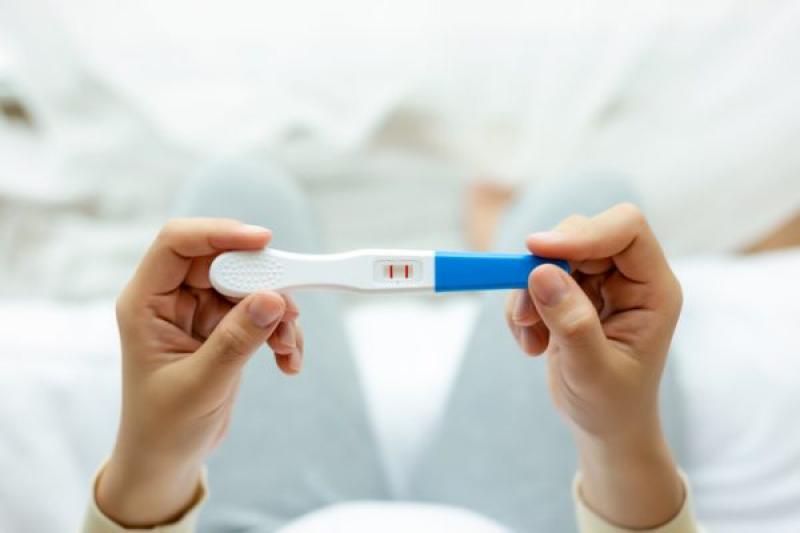Human chorionic gonadotropin (HCG) is a hormone produced during pregnancy. HCG plays several important roles in both pregnancy and male fertility. This article will explore the functions of HCG and its significance.
What is HCG?
HCG is a hormone produced by cells that develop into the placenta after implantation of a fertilized egg. It is often used as a biomarker for pregnancy because its levels rise markedly soon after implantation. Chemically, HCG is a glycoprotein hormone composed of two subunits - an alpha and a beta subunit. The beta subunit of HCG is unique and what distinguishes it from other glycoprotein hormones.
Role in Early Pregnancy
One of the major roles of human chorionic gonadotropin Human Chorionic Gonadotropin (HCG) during pregnancy is to support the corpus luteum in the ovaries. After ovulation occurs each month, the leftover follicle which released the egg sac develops into the corpus luteum. The corpus luteum produces progesterone, which is vital to preparing the uterus for potential implantation. However, the corpus luteum only functions temporarily and will degrade over a couple of weeks if implantation does not occur and pregnancy is not established. When a fertilized egg implants into the uterine wall, the developing placental cells secrete HCG. This HCG acts on the corpus luteum to signal that pregnancy has occurred and causes the corpus luteum to continue producing progesterone. The progesterone helps sustain and thicken the uterine lining to support continued development of the fertilized egg. If pregnancy is not achieved, HCG levels remain low and the corpus luteum breaks down, resulting in menstruation.
HCG Boosts Progesterone & Estrogen Levels
In addition to supporting the corpus luteum, human chorionic gonadotropin (HCG) also raises progesterone and estrogen levels directly during early pregnancy. Progesterone prepares the endometrium by inhibiting myometrial contractions and maintaining adequate blood flow to the uterus. Estrogen stimulates the growth of milk ducts in the breasts in preparation for lactation. Together, the increased progesterone and estrogen are responsible for many of the early signs and symptoms of pregnancy like nausea, breast swelling/tenderness, fatigue, and mood changes. Maintaining optimal levels of these key pregnancy hormones is crucial for successful implantation and placenta development.
Role in Supporting the Placenta
As pregnancy progresses beyond the first trimester, the placenta takes over production of progesterone from the corpus luteum. HCG continues to be secreted from the placenta as well. While no longer needed to maintain the corpus luteum, HCG plays an important supportive role in placental development. Studies have shown that HCG stimulates placental angiogenesis, or blood vessel growth, by promoting development of new vessels from pre-existing ones. Well-vascularized placenta is critical for delivering oxygen and nutrients from the mother’s bloodstream to the growing fetus.
Significance in Male Fertility
Although primarily known for its function in pregnancy, human chorionic gonadotropin (HCG) also plays an important role in male fertility. In men, HCG stimulates testicular Leydig cells to produce testosterone. Administering HCG can help treat conditions where the pituitary or hypothalamus is not signaling the Leydig cells adequately to produce testosterone, such as secondary hypogonadism. It is sometimes used along with clomiphene citrate as a treatment for oligospermia or low sperm counts associated with hypogonadism. Boosting circulating testosterone levels with HCG can improve sperm production and quality in these cases. HCG is also a component of some male birth control methods under research, since suppressing natural testosterone temporarily via HCG/LH administration can reduce sperm counts to a level that prevents successful fertilization.
HCG as a Pregnancy Test Biomarker
Because human chorionic gonadotropin (HCG) levels rapidly rise in the blood and urine with the establishment of a pregnancy, detecting its presence serves as one of the earliest and most accurate proxies for confirming an implantation has occurred. Most common home pregnancy tests are designed to identify HCG in a urine sample just days before a missed period. HCG can sometimes be detected even before a pregnancy causes a positive result on an early response pregnancy test. Serial quantitative HCG blood tests are also used by doctors to monitor early pregnancy progression and detect potential complications like ectopic pregnancies or miscarriage. Monitoring how HCG counts change over 48 hours in early pregnancy provides valuable clinical information.
In Summary
In closing, human chorionic gonadotropin (HCG) plays multifaceted and important roles from the very earliest phases of pregnancy through fetal development. Its precise signaling actions are crucial for maintaining progesterone support of implantation, stimulating placental blood vessel growth, and sustaining adequate progesterone and estrogen production vital for pregnancy establishment and maintenance. Beyond pregnancy itself, manipulating HCG levels provides clinical utility in addressing some male fertility and hormonal health issues as well. Understanding HCG’s diverse biological functions sheds light on the intricate molecular mechanisms that drive healthy reproductive processes in both sexes.
For Deeper Insights, Find the Report in the Language that You want:
About Author:
Priya Pandey is a dynamic and passionate editor with over three years of expertise in content editing and proofreading. Holding a bachelor's degree in biotechnology, Priya has a knack for making the content engaging. Her diverse portfolio includes editing documents across different industries, including food and beverages, information and technology, healthcare, chemical and materials, etc. Priya's meticulous attention to detail and commitment to excellence make her an invaluable asset in the world of content creation and refinement.
(LinkedIn- https://www.linkedin.com/in/priya-pandey-8417a8173/)
